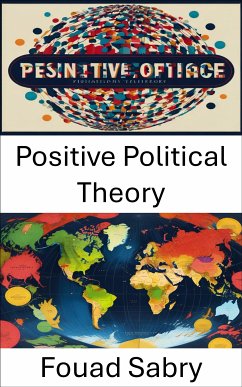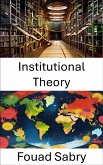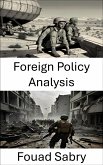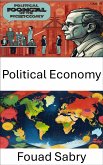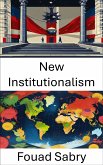Explore "Positive Political Theory," a comprehensive guide to applying rational choice theory in political science. This book offers valuable insights into decision-making and governance, ideal for professionals, students, and enthusiasts.
Chapters Highlights:
- 1: Introduction to positive political theory and its significance.
- 2: Overview of political science and its context.
- 3: Principles of rational choice theory in political behavior.
- 4: Public choice theory merging economics and politics.
- 5: Importance of institutional frameworks in politics.
- 6: Historical development of political institutions.
- 7: Economic theories of democracy and voter behavior.
- 8: Rational choice within institutional contexts.
- 9: Altruism's role in voting behavior.
- 10: Rational choice in international relations.
- 11: Contributions of William H. Riker.
- 12: Bounded rationality in political decision-making.
- 13: Critical role of institutions in politics.
- 14: New institutional economics in political analysis.
- 15: Contributions of Peter Ordeshook.
- 16: James Fearon's work on political theory.
- 17: Margaret Levi's insights on political institutions.
- 18: Rochester School's rational choice applications.
- 19: James D. Morrow on international relations.
- 20: Kenneth Shepsle's work on political institutions.
- 21: Heresthetic and strategic political decision-making.
"Positive Political Theory" is a crucial resource for understanding the intersection of rational choice theory and political science, offering essential insights into the dynamics of political behavior and institutions.
Chapters Highlights:
- 1: Introduction to positive political theory and its significance.
- 2: Overview of political science and its context.
- 3: Principles of rational choice theory in political behavior.
- 4: Public choice theory merging economics and politics.
- 5: Importance of institutional frameworks in politics.
- 6: Historical development of political institutions.
- 7: Economic theories of democracy and voter behavior.
- 8: Rational choice within institutional contexts.
- 9: Altruism's role in voting behavior.
- 10: Rational choice in international relations.
- 11: Contributions of William H. Riker.
- 12: Bounded rationality in political decision-making.
- 13: Critical role of institutions in politics.
- 14: New institutional economics in political analysis.
- 15: Contributions of Peter Ordeshook.
- 16: James Fearon's work on political theory.
- 17: Margaret Levi's insights on political institutions.
- 18: Rochester School's rational choice applications.
- 19: James D. Morrow on international relations.
- 20: Kenneth Shepsle's work on political institutions.
- 21: Heresthetic and strategic political decision-making.
"Positive Political Theory" is a crucial resource for understanding the intersection of rational choice theory and political science, offering essential insights into the dynamics of political behavior and institutions.
Dieser Download kann aus rechtlichen Gründen nur mit Rechnungsadresse in A, B, BG, CY, CZ, D, DK, EW, E, FIN, F, GR, H, IRL, I, LT, L, LR, M, NL, PL, P, R, S, SLO, SK ausgeliefert werden.

